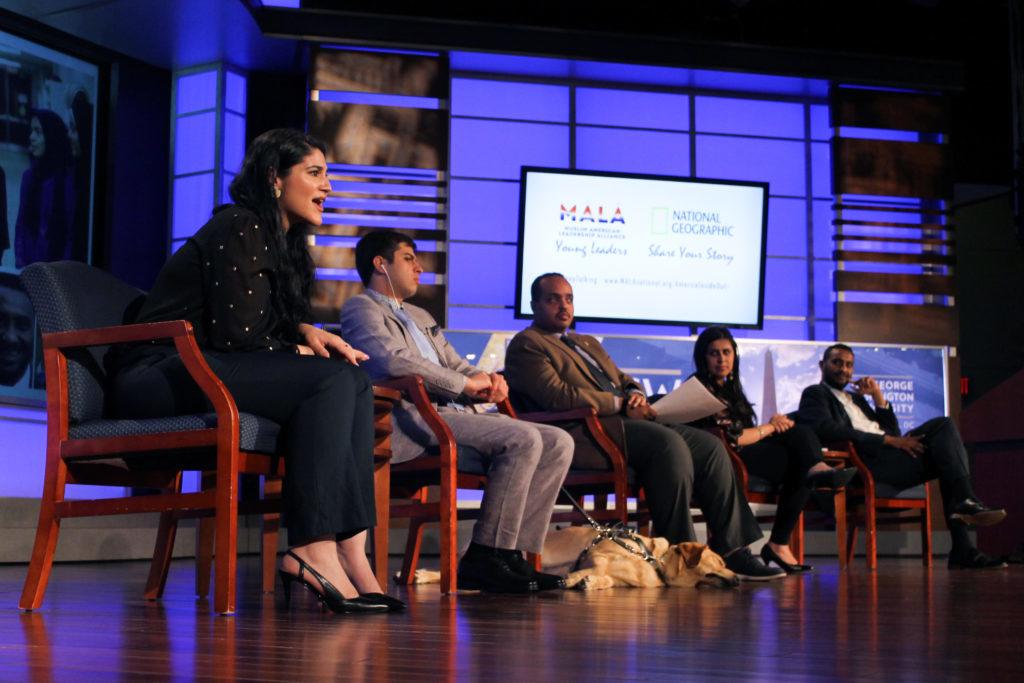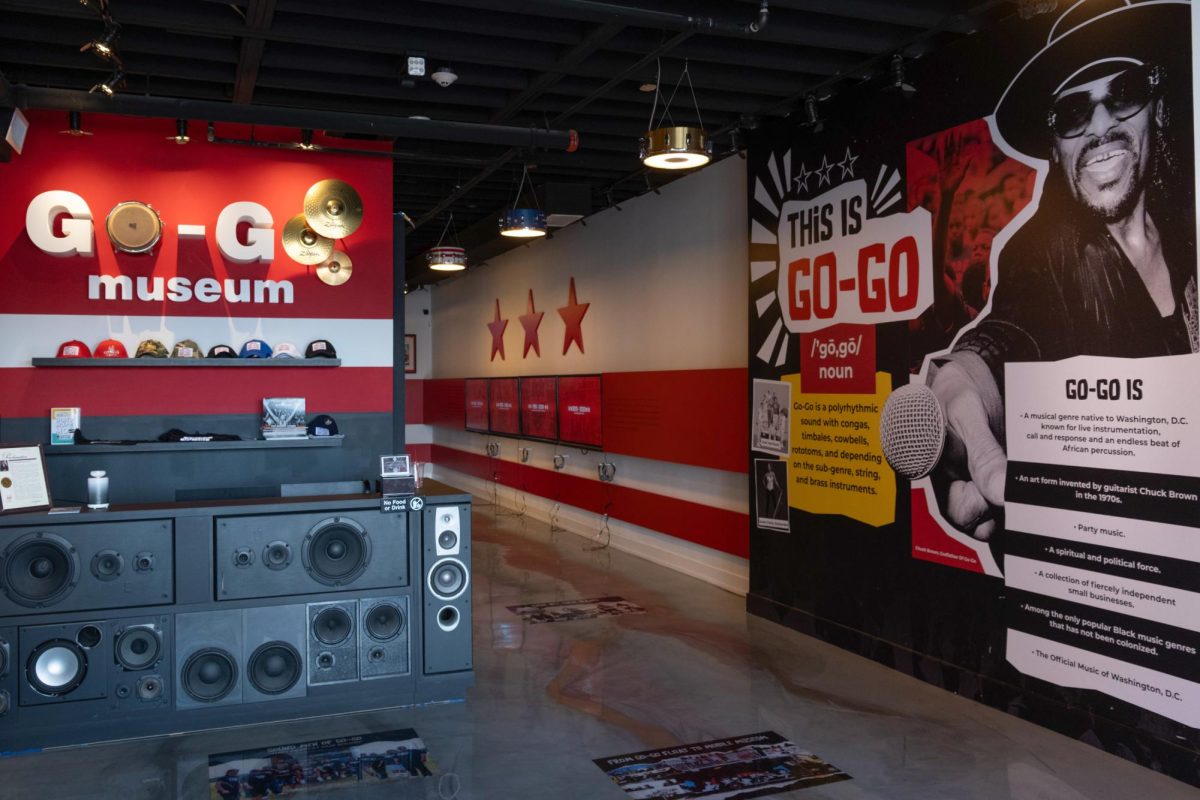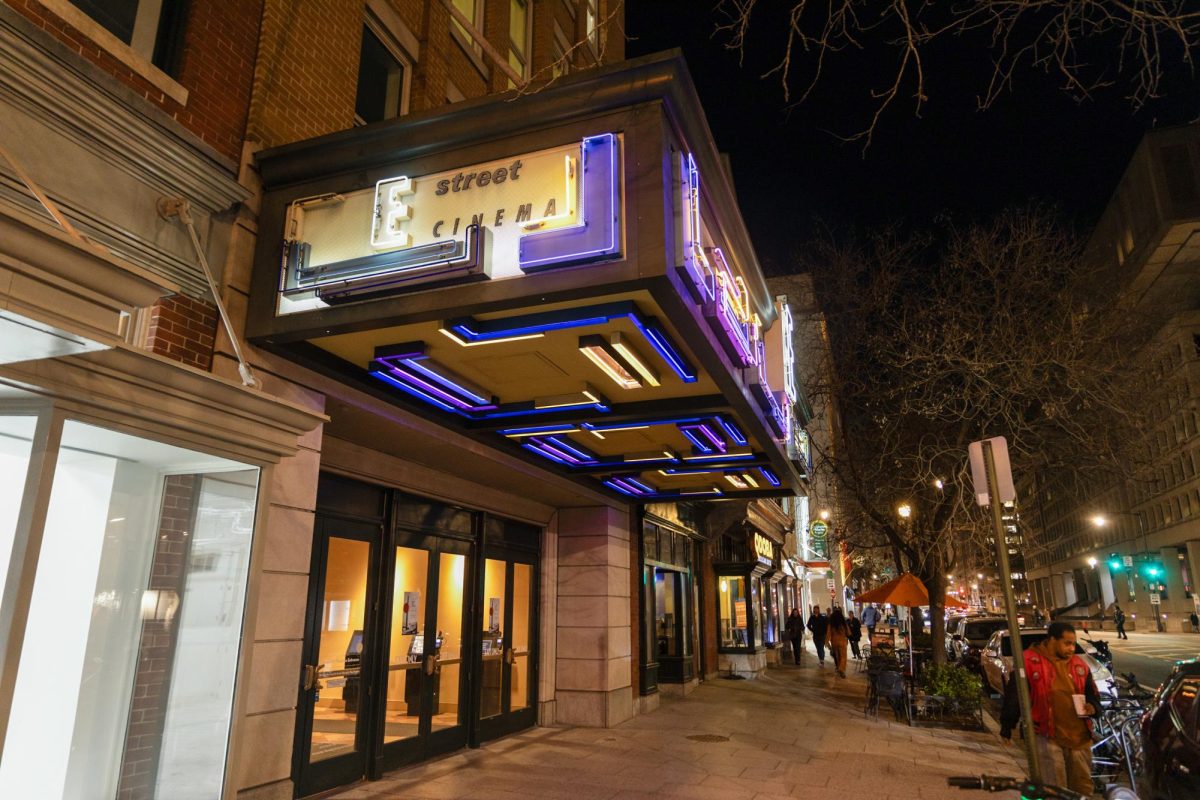The Muslim American Leadership Alliance hosted the premiere of National Geographic’s “The Muslim Next Door” Wednesday in Jack Morton Auditorium. After the screening, a panel of four speakers discussed their experiences navigating the country as Muslim Americans.
The screening featured one episode from the six-part series tilted “America Inside Out,” which stars Katie Couric as she meets with different groups in the country. In this episode, Couric featured prominent Muslim Americans who discussed their perspective on issues like misconceptions about their identity and visibility in conservative spaces.
In the episode, Couric and Muslim actor Aasif Mandvi attended a conservative convention and were met with hostility by the crowds. One person in the crowd said Muslims were a “threat to our entire existence.” The malicious treatment of Muslims has intensified since the last presidential campaign and President Donald Trump’s ban on Muslims sent a threatening message to American Muslims, Mandvi said in the screening.
Couric also found that adolescent Muslims are bullied when she visited an Islamic Center. Couric asked a girl in eighth grade what it is like to be Muslim, and the young girl replied that she experienced difficulties with students mischaracterizing her.
“Some people think I’m a terrorist because of ISIS and stuff. Some people ask if there’s a bomb in here,” the young girl in the episode said, pointing to her hijab.
The episode also featured a group of young, successful Muslim women who discussed how they have been treated in society. One of them founded MuslimGirl – an online magazine that gives Muslim women a voice in mainstream society. This idea stemmed from feelings of frustrations about the misconceptions of her religious identity. Couric also spoke with a 2016 Olympic Bronze Medalist and a hip-hop artist who raps about wearing the hijab and violence against women.
Following the screening, a panel of four Muslim Americans gave their first-hand accounts of dealing with hate and hardship in the U.S.
Panelist Donya Nasser, a Herbert Scoville Jr. peace fellow at the Truman Center for National Policy, detailed workplace discrimination she has experienced in the U.S. The head of an organization where she volunteered began to harass her over email once she found out Nasser was Muslim, saying she could not be both a feminist and a Muslim because the two were “mutually exclusive.” Nasser said she felt it was unfair to let a small group of extremists represent an entire religion.
Nasser also advocated for more Muslims to get involved in politics so they can be a voice for change.
“If you’re not at the table, you’re on the menu. This is very true for Muslim community,” she said. “I think that if we had more Muslim advocates in Congress then it wouldn’t be so easy to pass something like the Muslim ban.”
In Sudan, Mohamed Abubakr ran three organizations, focusing on minority protection, intercultural dialogue and producing contemporary solutions between Israelis and Arabs. He moved to the U.S. two years ago and spoke about being an immigrant.
He said he learned about American culture through television shows and was self-taught English through the popular show “Seinfeld.” In this political climate, Abubakr said since he arrived, he has been closely watched by society because of who he is.
“My identity is suddenly under a microscope, kind of under attack,” Abubakr said.
Sadaf Jaffer, a postdoctoral research associate at Princeton’s Institute for International and Regional Studies, said the September 11 attacks occurred during her first week of college at Georgetown University. She said the event shaped how Jaffer approached learning about Islamic history and ultimately pushed her to pursue a Ph.D.
“I think there’s such a gap between Islamic studies and understanding what Islamic history is and popular understandings, and that’s where I try to bridge the gap,” Jaffer said.
Another panelist was Laurel Hilbert, a visually-impaired immigrant from Syria who came here four years ago with hopes of a better life. He said he came to the country for job security and improved living conditions.
“I believe in this country and the opportunities that will be provided to me once I am able to speak the language, since I came at a disadvantage not speaking a word of the language,” he said.
Hilbert bounced from park bench to shelter to sidewalk for months on end. Once he became financially stable, his homelessness inspired him to found A Dignified Home Children and Youth Services – a non-profit organization serving homeless young people in the San Francisco area. Hilbert urged people to become aware of the homeless populations and stereotypes.
“Our brighter futures depend on what we do today, not tomorrow,” he said.





